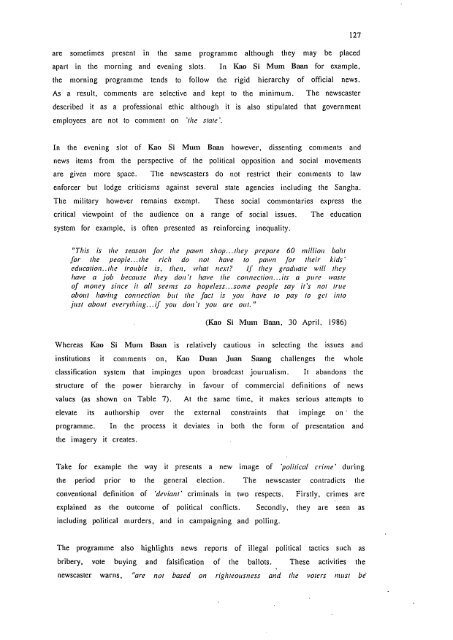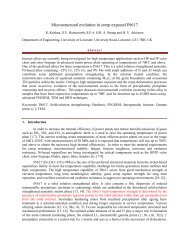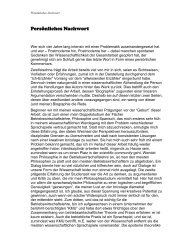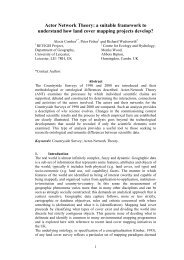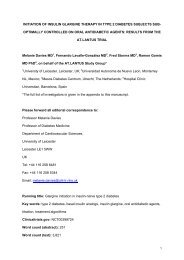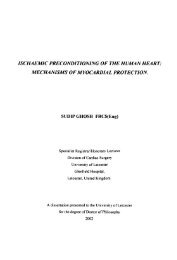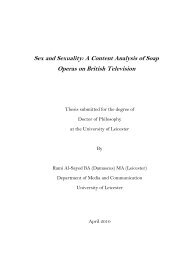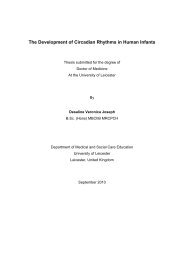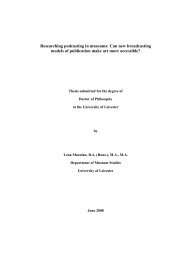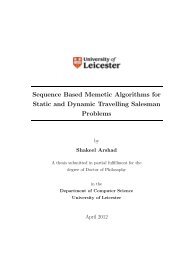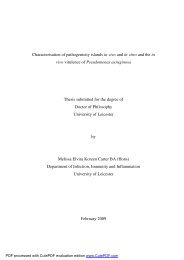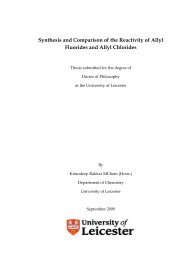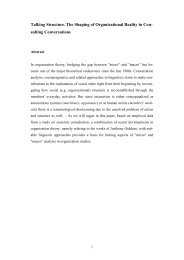iieiiei1eWrkers - Leicester Research Archive - University of Leicester
iieiiei1eWrkers - Leicester Research Archive - University of Leicester
iieiiei1eWrkers - Leicester Research Archive - University of Leicester
Create successful ePaper yourself
Turn your PDF publications into a flip-book with our unique Google optimized e-Paper software.
are sometimes present in the same programme although they may be placed<br />
apart in the morning and evening slots. In Kao Si Mum Baan for example.<br />
the morning programme tends to follow the rigid hierarchy <strong>of</strong> <strong>of</strong>ficial news.<br />
As a result, comments are selective and kept to the minimum. The newscaster<br />
described it as a pr<strong>of</strong>essional ethic although it is also stipulated that government<br />
employees are not to comment on 'the state'.<br />
In the evening slot <strong>of</strong> Kao Si Mum Baan however, dissenting comments and<br />
news items from the perspective <strong>of</strong> the political opposition and social movements<br />
are given more space. The newscasters do not restrict their comments to law<br />
enforcer but lodge criticisms against several state agencies including the Sangha.<br />
The military however remains exempt. These social commentaries express the<br />
critical viewpoint <strong>of</strong> the audience on a range <strong>of</strong> social issues. The education<br />
system for example, is <strong>of</strong>ten presented as reinforcing inequality.<br />
"This is the season for i/ic pawn shop. ..tliey prepare 60 mi//iou ba/u<br />
for the people... the rich do not have to pawn for their kids'<br />
education.. the trouble is, then, what next? If they graduate will they<br />
have a job because they doui 't have the connection.. .its a pure waste<br />
<strong>of</strong> money since it all seems so hopeless... some people say it's no! true<br />
about having connection but the fact is you have to pay to get i/ito<br />
just about everyl/liuig. . . if you don '1 you are out.<br />
(Kao Si Mum Baan, 30 April, 1986)<br />
Whereas Kao Si Mum Baan is relatively cautious in selecting the issues and<br />
institutions it comments on, Kao Duan Juan Saaiig challenges the whole<br />
classification system that impinges upon broadcast journalism. It abandons the<br />
structure <strong>of</strong> the power hierarchy in favour <strong>of</strong> commercial definitions <strong>of</strong> news<br />
values (as shown on Table 7). At the same time, it makes serious attempts to<br />
elevate its authorship over the external constraints that impinge on the<br />
programme. In the process it deviates in both the form <strong>of</strong> presentation and<br />
the imagery it creates.<br />
Take for example the way it presents a new image <strong>of</strong> 'political crime' during<br />
the period prior to the general election. The newscaster contradicts the<br />
conventional definition <strong>of</strong> 'deviant' criminals in two respects. Firstly, ci'imes are<br />
explained as the outcome <strong>of</strong> political conflicts. Secondly, they are seen as<br />
including political murders, and in campaigning and polling.<br />
The programme also highlights news reports <strong>of</strong> illegal political tactics such as<br />
bribery, vote buying and falsification <strong>of</strong> the ballots. These activities the<br />
newscaster warns, "are not based on righteousness and the voters must be'<br />
127


